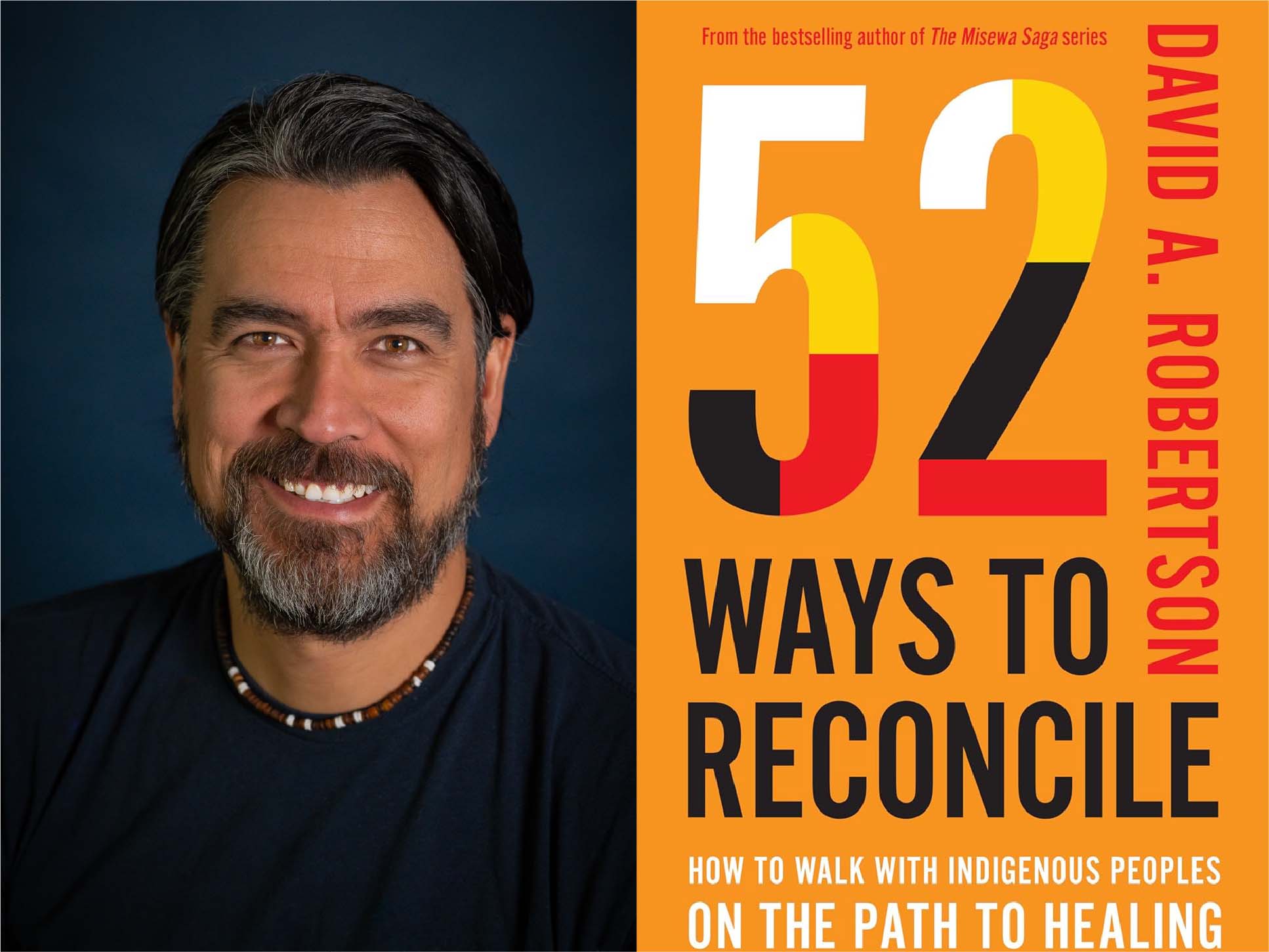


David A. Robertson is a two-time Governor General’s Literary Award winner and has won the TD Canadian Children’s Literature Award, the Writer’s Union of Canada Freedom to Read Award, the Alexander Kennedy Isbister Award for Non-Fiction, and the Carol Shields Winnipeg Book Award. An author, editor, and speaker on Indigenous issues, mental health, and freedom of expression, his books include the novel The Theory of Crows; the memoirs All the Little Monsters: How I Learned to Live with Anxiety, and Black Water; the picture books When We Were Alone and On the Trapline; and the middle-grade series The Misewa Saga. Robertson is founder and Editorial Director of Swift Water Books, a Tundra Book Group imprint which focuses on celebrating Story and providing a platform for Indigenous writers and illustrators to share their truths. Robertson’s podcast Kiwew, won the 2021 RTDNA Prairie Region Award for Best Podcast. Robertson is a member of Norway House Cree Nation and lives in Winnipeg.
Website: darrobertson.ca https://www.darobertson.ca
Instagram/Threads: @davidrobertsonwriter @davidrobertsonwriter
My friend Dave is wide open, unflinchingly honest, and brave. So brave.”–Shelagh Rogers
The essential guide for all Canadians to understand how small and attainable acts towards reconciliation can make an enormous difference in our collective efforts to build a reconciled country.
52 Ways to Reconcile is an accessible, friendly guide for non-Indigenous people eager to learn, or Indigenous people eager to do more in our collective effort towards reconciliation, as people, and as a country. As much as non-Indigenous people want to walk the path of reconciliation, they often aren’t quite sure what to do, and they’re afraid of making mistakes. This book is the answer and the long overdue guide.
The idea of this book is simple: 52 small acts of reconciliation to consider, one per week, for an entire year. They’re all doable, and they’re all meaningful. All 52 steps take readers in the right direction, towards a healthier relationship between Indigenous and non-Indigenous people and a time when we are past trauma. By following these steps, we can live in stronger and healthier communities equally, and respectfully, together.
Test 2
Test 2
HOSTED BY
Pam Rocker
WHAT TO EXPECT
90-minute storytelling and interviews
HOSTED BY
Shelagh Rogers
WHAT TO EXPECT
75-minute conversation
In the spirit of reconciliation, we acknowledge that we live, work and play on the traditional territories of the Blackfoot Confederacy (Siksika, Kainai, Piikani), the Tsuut’ina, the Iyarhe Nakoda Nations, the Otipemisiwak Métis Government of the Métis Nation within Alberta District 6, and all people who make their homes in the Treaty 7 region of Southern Alberta.